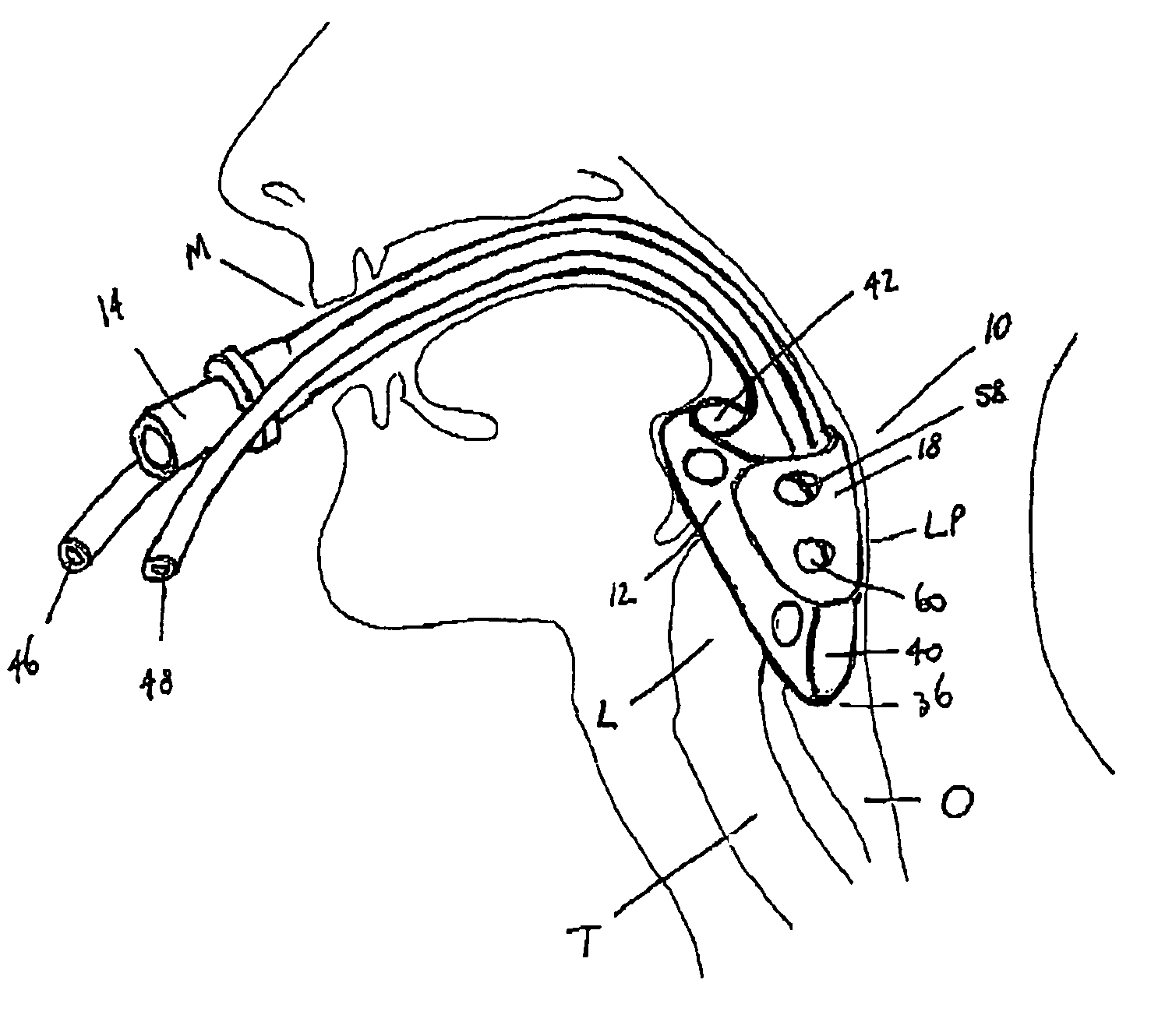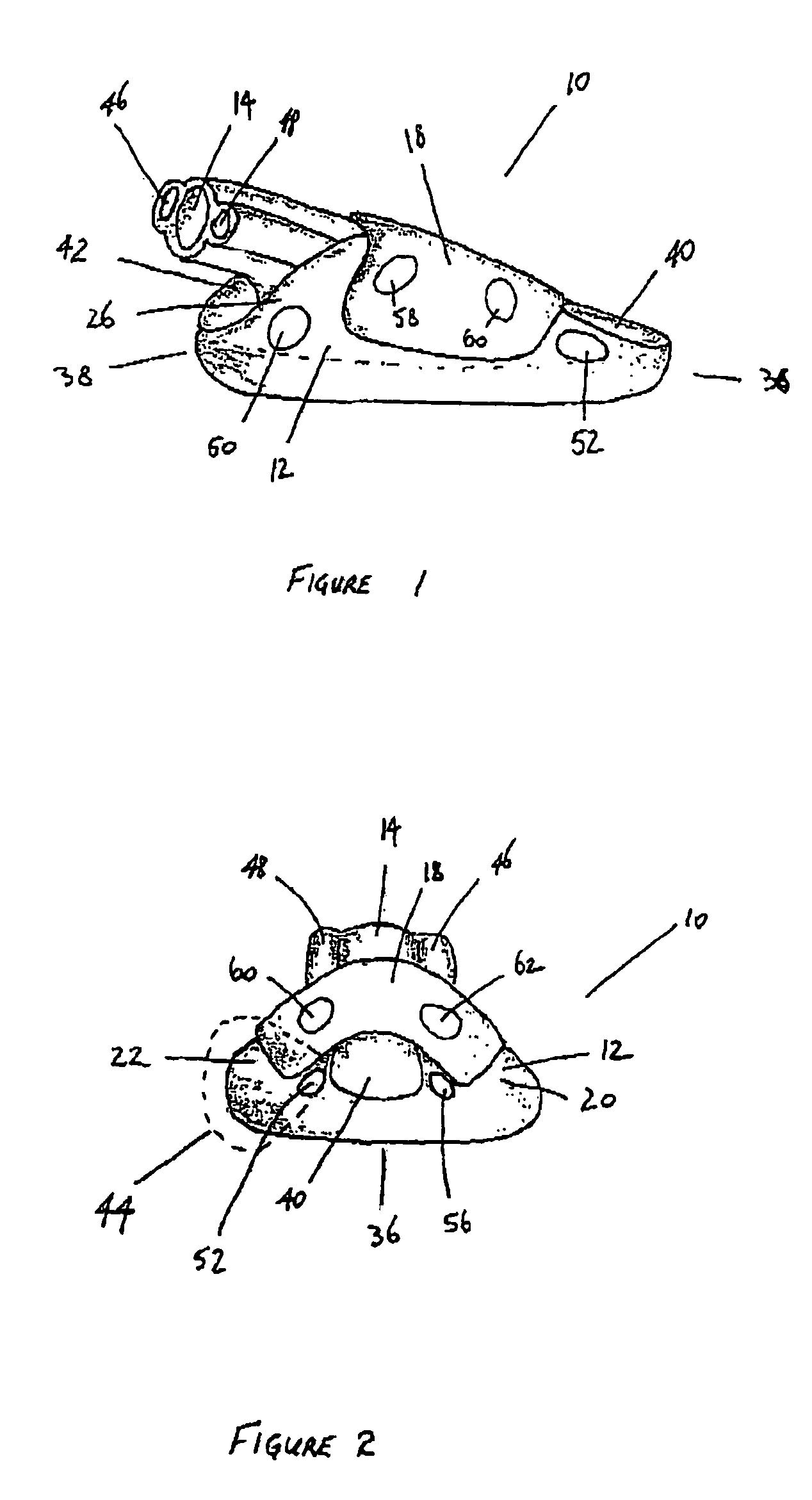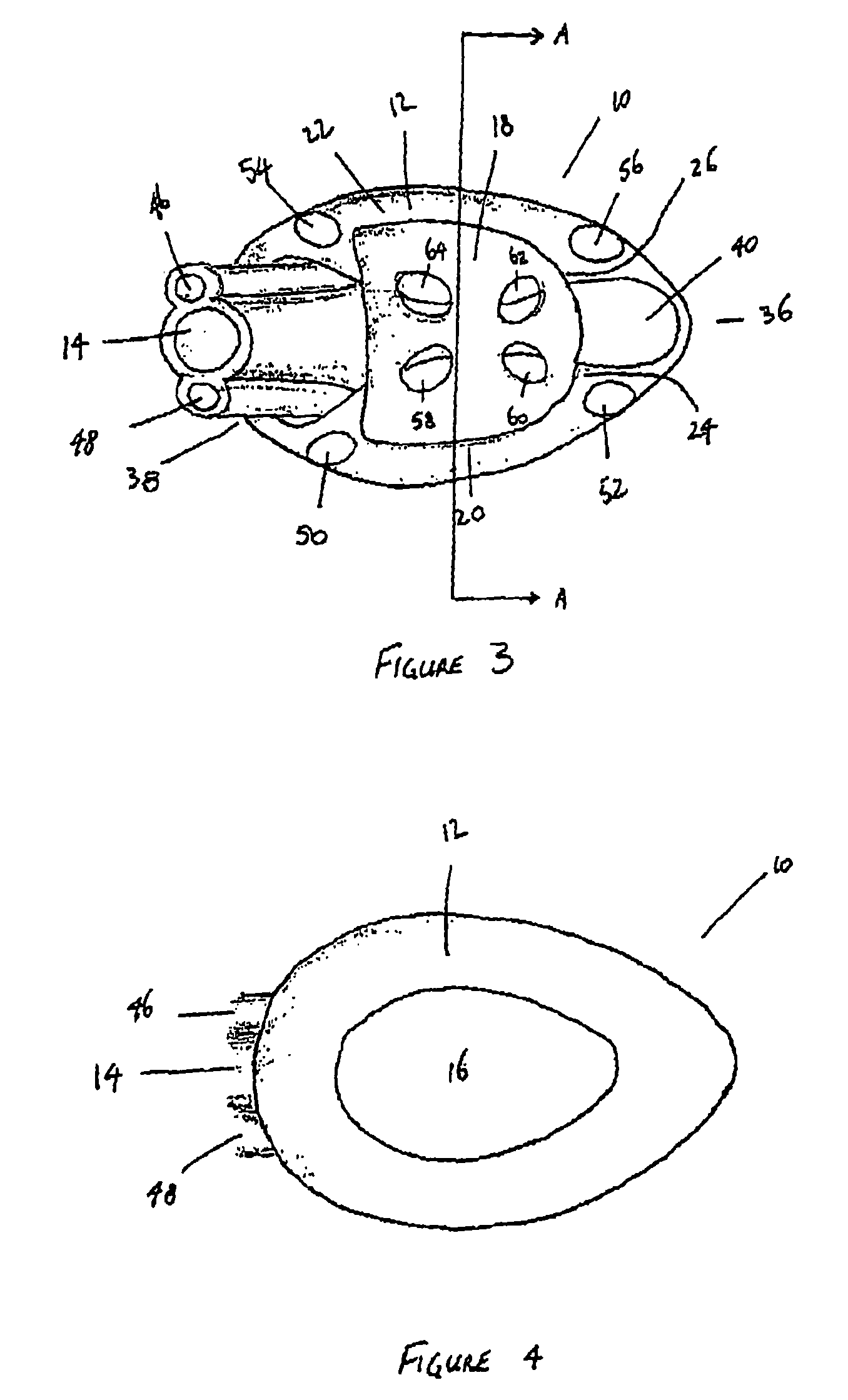Laryngeal mask
a technology of laryngeal tube and ring, which is applied in the field of laryngeal tube, can solve the problems of difficulty in correctly positioning the endo-tracheal tube, potentially dangerous situations, and leakage of the inflatable ring or collar, and achieves the effect of much easier insertion of the mask
- Summary
- Abstract
- Description
- Claims
- Application Information
AI Technical Summary
Benefits of technology
Problems solved by technology
Method used
Image
Examples
Embodiment Construction
[0080]It will be understood that the attached drawings are provided to show preferred embodiments of the invention. It is to be understood that the invention should not be considered to be limited to all of the features shown in those drawings.
[0081]Referring now to FIGS. 1 to 6, which show various views of the device 10 in accordance with the present invention, it can be seen that the device 10 includes a mask 12. An airway tube 14 is connected to or formed with the mask such that the distal end of the airway tube opens into the airway cavity 16 that is formed on the laryngeal side of the mask. The airway tube 14 may be a soft, flexible tube.
[0082]Alternatively, it may be a rigid tube that has been shaped to facilitate insertion and positioning of the device into the proper position in the patient. Airway tube 14 enables gases to be provided to the larynx and trachea when the device has been properly inserted into the patient. The gas that is provided to the larynx and trachea may ...
PUM
 Login to View More
Login to View More Abstract
Description
Claims
Application Information
 Login to View More
Login to View More - R&D
- Intellectual Property
- Life Sciences
- Materials
- Tech Scout
- Unparalleled Data Quality
- Higher Quality Content
- 60% Fewer Hallucinations
Browse by: Latest US Patents, China's latest patents, Technical Efficacy Thesaurus, Application Domain, Technology Topic, Popular Technical Reports.
© 2025 PatSnap. All rights reserved.Legal|Privacy policy|Modern Slavery Act Transparency Statement|Sitemap|About US| Contact US: help@patsnap.com



